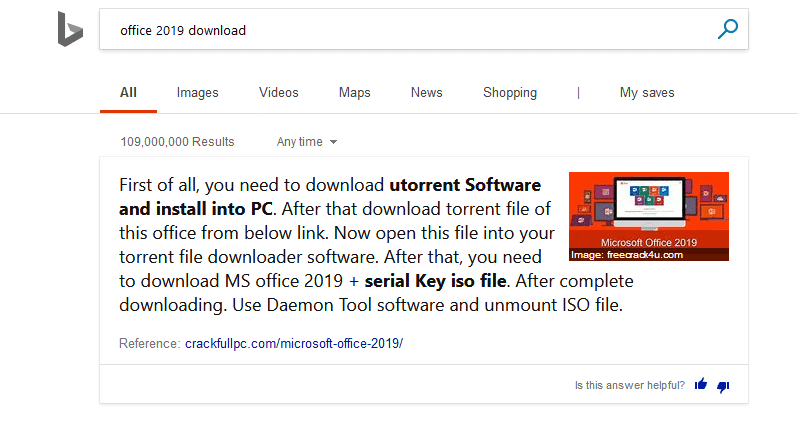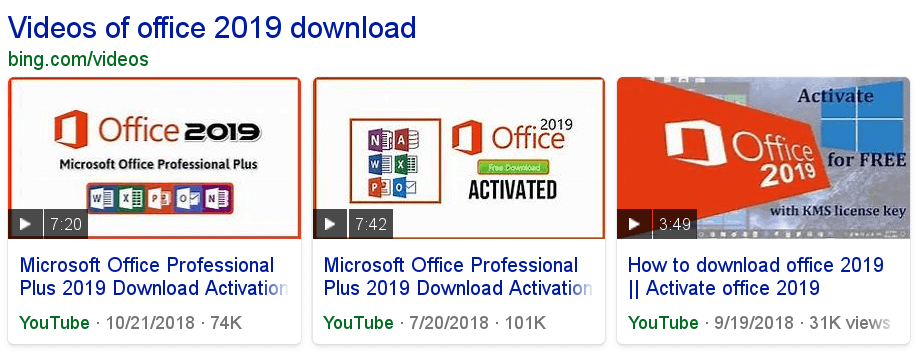Use the machine searchMicrosoft Bing and look for links to download it Office 2019. The results will surprise you. The Bing search engine will return you a site that gives tutorials on how to hack Office.
This happens every time users search for the term "office 2019 download" on Bing. The result is a Bing search card that shows you the steps you need to take to make your own Office without buying it.
The crackfullpc website shows a step-by-step guide on how λήψηand installing a "cracked" version of Office 2019.
The site suggests downloading and installing uTorrent, a well-known application for downloading torrent files. It then asks users to download a torrent file that contains a pirated version of Office 2019. After downloading, the page guides the audience in installing the pirate version and triggering it with a crack.
We should mention that until now the domain where these files are located (dinthatharronhad) is not displayed malicious on VirusTotal.
Earlier in 2018, Bing in the search term "Google Chrome" featured in the search results a fake Google Chrome download page that offered a trojanized browser version.
The current achievement of the company through Bing has been identified by Dutch security researcher Jeroen Frijters, who he published his findings on Twitter.
The tweet will probably wake up Microsoft staff and interfere with and clear Bing search results in the next few hours, just as they did with the malicious Google Chrome download page.
Updated: As can be seen, Microsoft staff corrected search results but forgot to change links to videos:

____________
- Chrome restore of WWW and HTTP
- Microsoft invites Windows Insiders to Skype
- Microsoft Edge in the results even if you are looking for Firefox





